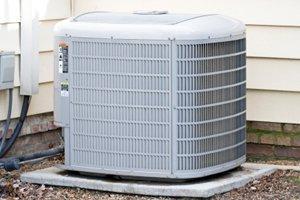Have you ever wondered if a downpour will negatively impact your AC unit? If so, you are not alone. A deluge of rain can damage many objects, so why should your AC be any different? Well, we have good news for you. Your AC’s condenser, the outside portion that most of us are most acutely aware of, is made to withstand the harshest of conditions and should handle the rain just fine.
It is perfectly safe to run your AC during a rain storm. Rain will not interfere with the outdoor unit’s ability to function correctly. In fact, using your AC on warm, rainy days can keep your home more comfortable — your indoor evaporator coils extract moisture and lower humidity levels, which improves comfort levels indoors. Now if rain storms result in flooding and you have standing water around your unit, you should stop using the system, and turn off power at your home’s electrical panel to prevent damage. Have your unit inspected by an HVAC professional before using it after flooding.
Is It Ok To Run Your Air Conditioner During A Thunderstorm?
The hot, humid summer conditions that make you want to crank the air conditioner also create the ideal conditions for thunderstorms. Operating your air conditioner during a thunderstorm can lead to some damage to your unit, so it’s best to shut it down when the weather starts acting up. Luckily, humidity and temperature drops when storms roll in, so you’ll get some relief even though your air conditioner is not in use.



